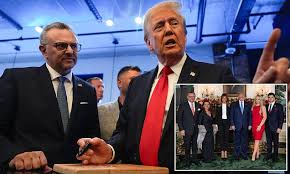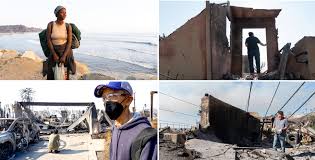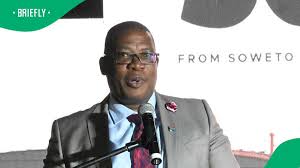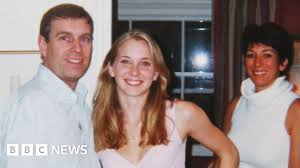When Tiffany Trump tied the knot with Michael Boulos back in 2022, few could’ve guessed her new father-in-law would end up in the political spotlight.
But now, Massad Boulos—Michael’s father—is making headlines not just for being part of the Trump family, but for the unusual way he’s operating inside Donald Trump’s administration.
It turns out Boulos might have misunderstood just how much influence his role was supposed to carry.
From Symbolic Appointment to Real-World Confusion
In the final days before returning to the White House, President Trump tapped Boulos to be a senior adviser on Middle East policy.
Trump praised the Lebanese-born businessman as a seasoned dealmaker with a deep commitment to peace in the region.
But insiders say the role was always meant to be mostly symbolic—a gesture, not a power post.
The problem? Boulos didn’t seem to get the memo.
According to senior officials speaking anonymously, everyone in the administration knew the role held little weight—except Boulos himself.
Quietly Reassigned, Still Acting Loud
Fast forward to last month, and Boulos’ job title shifted.
He’s now listed as a presidential adviser on African policy.
But despite the change, sources say not much has actually changed.
He reportedly doesn’t sit in on any key meetings, has no formal responsibilities, and is largely kept out of high-level conversations.
Yet, Boulos continues to hand out business cards inflating his role—cards that label him as a “senior advisor to the president.”
One official even described his efforts as “freelance foreign policy,” going so far as to say he’s taken liberties that have clashed with official White House positions.
Stepping on Diplomatic Toes in the Middle East
Even though Boulos was told to steer clear of Middle East matters, sources say he continues to dabble.
That includes giving unsanctioned interviews to Arabic-language media and making bold claims about policy directions that aren’t aligned with the administration’s stance.
In one particularly sensitive case, Boulos questioned the U.S.’s recognition of Moroccan sovereignty over Western Sahara.
This was a huge red flag, since that decision was part of a Trump-era deal to encourage diplomatic ties between Morocco and Israel.
The fallout? The Moroccan government was furious, and Boulos had to issue a public statement backtracking, reaffirming U.S. support—likely at the request of the State Department.
Surprise Meeting in Paris Raises Eyebrows
Boulos also reportedly met with Nigerian President Bola Tinubu during a trip to Paris, but didn’t inform key diplomatic staff ahead of time.
That left U.S. embassies scrambling to figure out what was going on—learning about the meeting only after the fact.
However, other officials later pushed back on that version of events, saying the meeting was in fact coordinated through the proper channels and even posted by the U.S. embassy in Nigeria afterward.
Despite the Criticism, Boulos Has Scored Some Wins
While critics paint him as overstepping and out of sync with official policy, others say Boulos has actually made real progress in Africa.
In just a few weeks, he reportedly helped advance a peace deal between the Democratic Republic of Congo and Rwanda—a significant step toward easing violence in the region.
Even Secretary of State Marco Rubio gave Boulos a shoutout, saying he “did something really great” at a recent Cabinet meeting.
White House Press Secretary Karoline Leavitt echoed that praise, pointing to the DRC-Rwanda deal as proof of his positive impact.
A Hand in Major Diplomatic Efforts
Boulos has also thrown his weight behind a major Biden-era infrastructure initiative in Central Africa—designed to counter China’s growing influence and control over critical minerals.
On top of that, he played a role in securing the release of three Americans who were facing the death penalty in the Congo over a failed coup plot.
Officials say those negotiations were already in progress, but Boulos helped push them across the finish line.
Quiet Office, Big Claims
Despite all this, Boulos isn’t exactly running the show.
His office sits in the Africa bureau of the State Department, and he operates under the guidance of senior diplomats.
While his job title might sound impressive, the actual setup is far more restrained than the business cards suggest.
Still, he’s managed to meet with more than a dozen foreign ministers and heads of state—gathering facetime and influence, even if it’s not always officially sanctioned.
Filling a Void No One Else Is Stepping Into
Some officials admit that while Boulos may not have been the most obvious pick, he’s filling a vacuum few others have shown interest in.
Africa policy, in particular, has been neglected within the administration, and Boulos is at least putting boots on the ground.
“He’s a nice person with a good demeanor,” one official told Politico.
“And Lord knows the administration needs someone—anyone—to work on Africa policy, since the bench is so shallow.”
An Unusual Role in an Unusual Administration
At the end of the day, Massad Boulos’ role remains something of a mystery.
He’s not quite a power broker, not quite a placeholder. He’s made blunders, but he’s also made progress.
And in an administration where titles don’t always match the power behind them, maybe that’s just par for the course.



